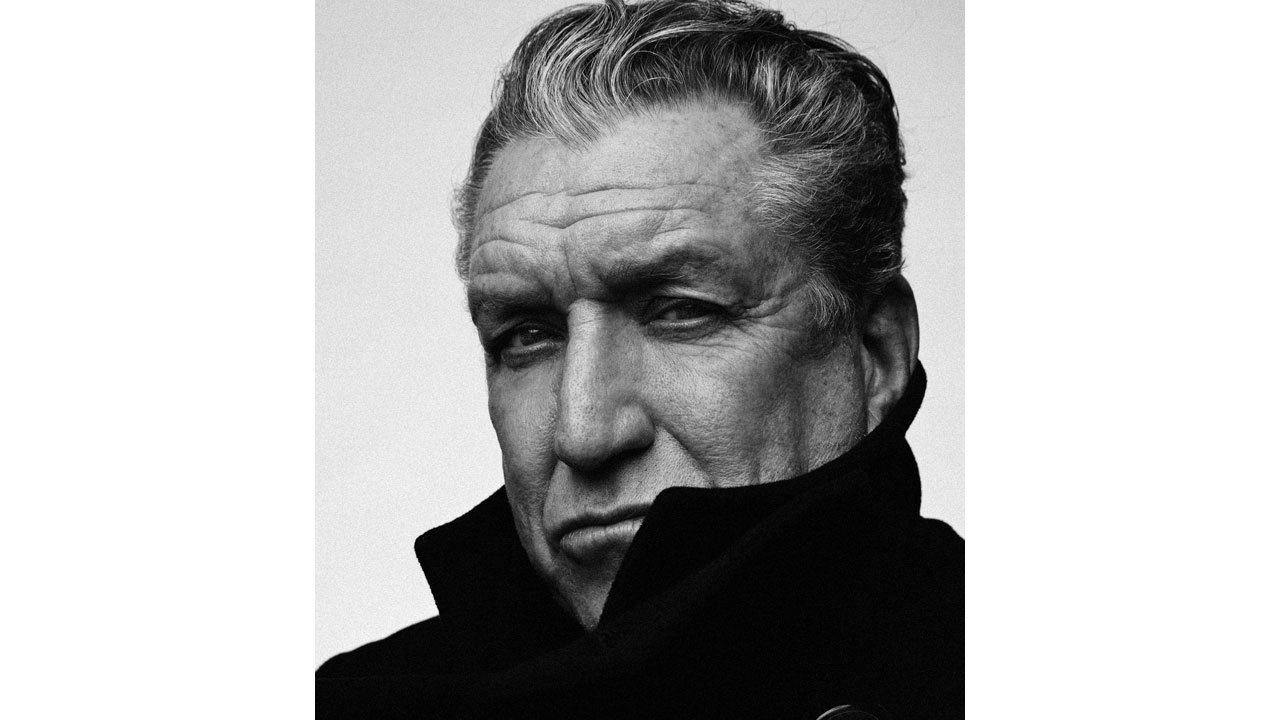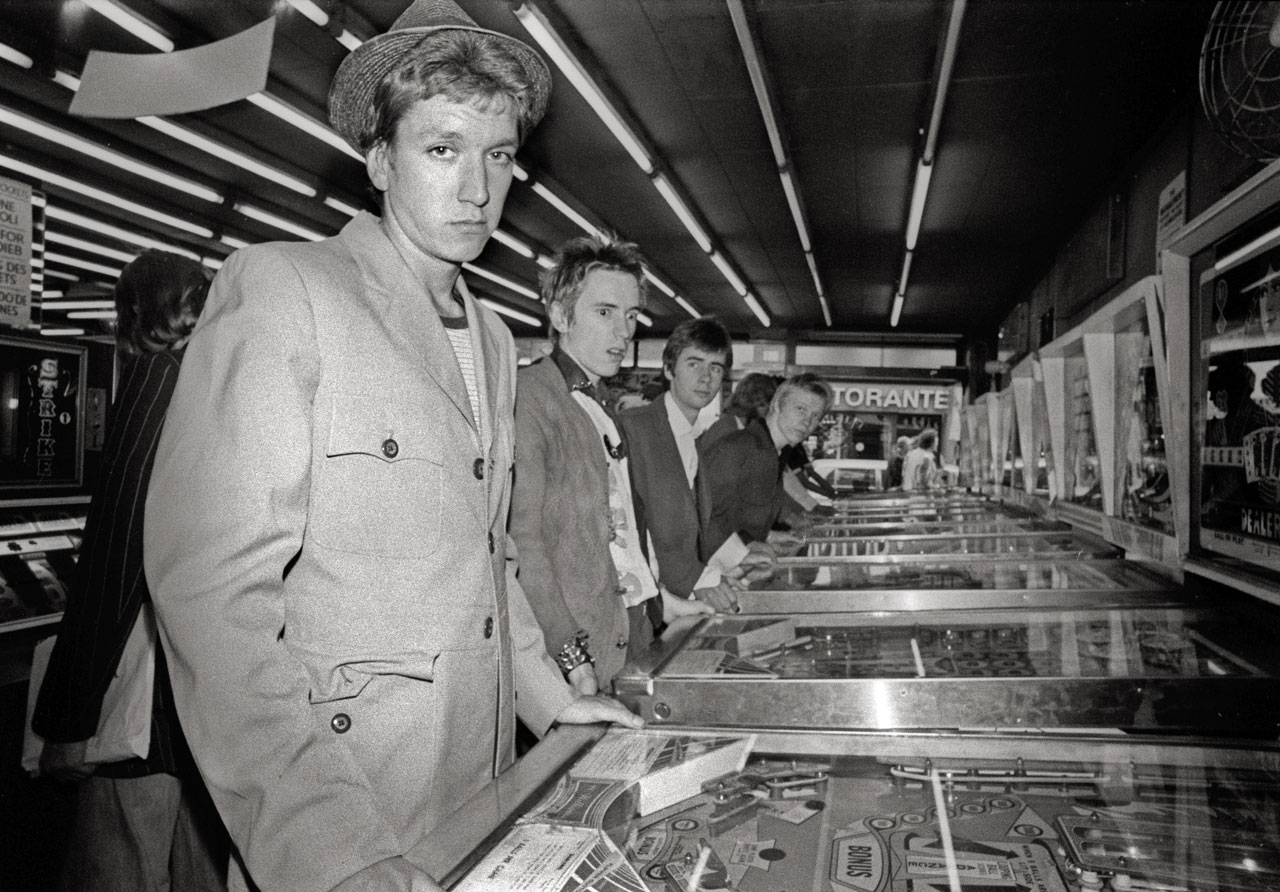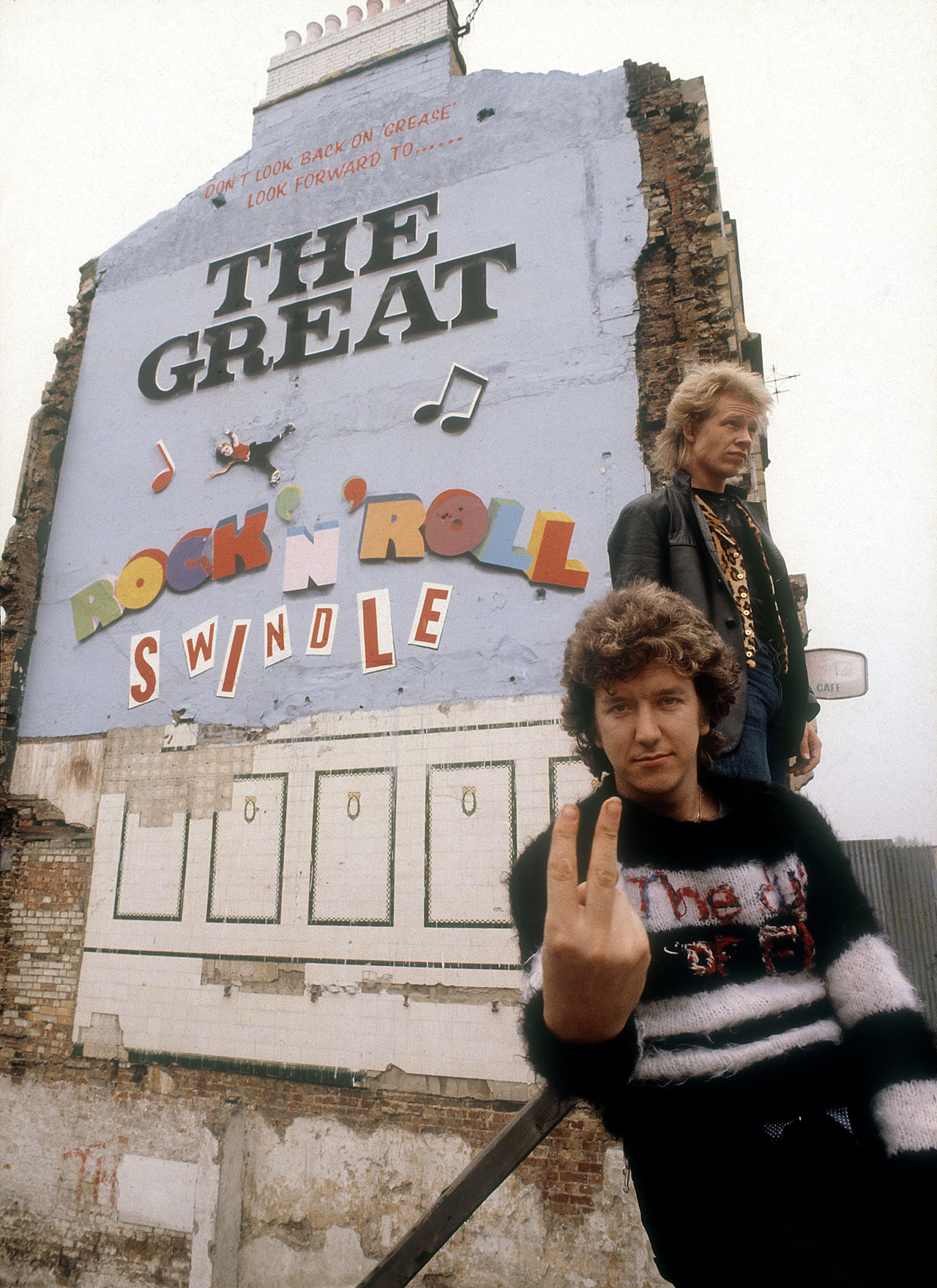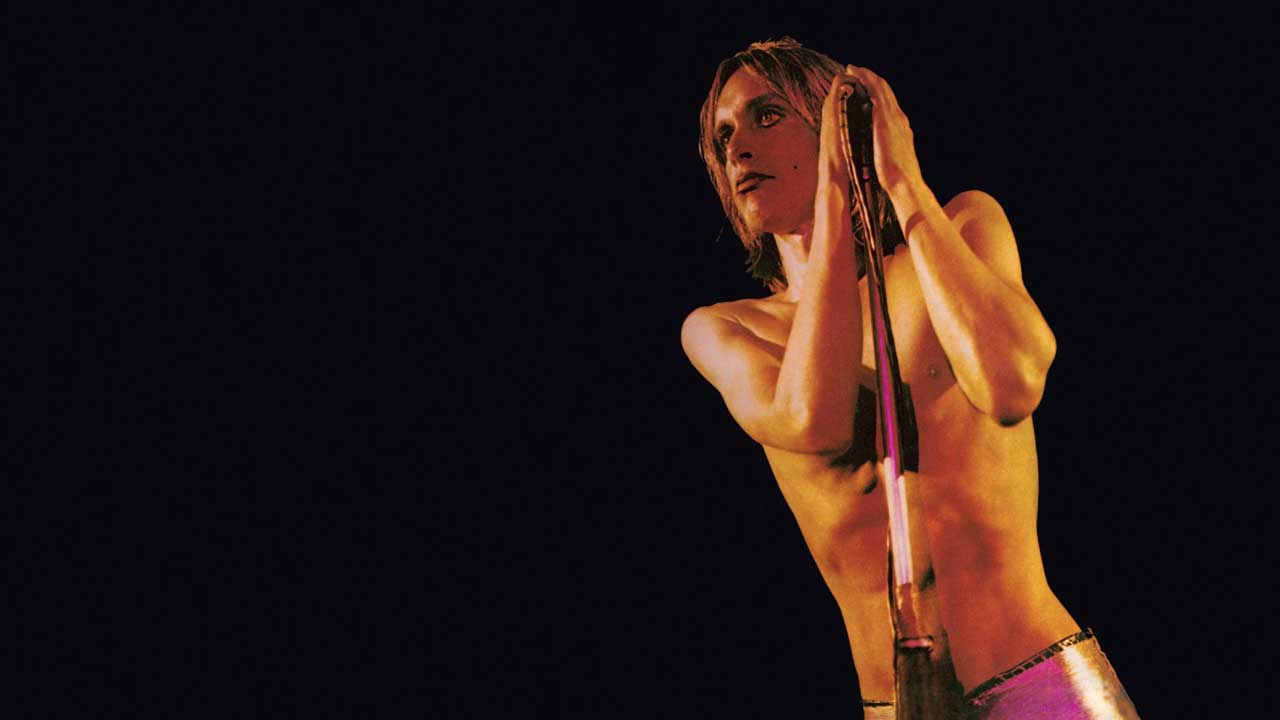Steve Jones: "The best part of being in a band is when no one knows who you are"
The former Sex Pistol has found happiness as a (sober) radio presenter in LA. But rock’n’roll still pumps his blood

There’s two sides of the Sex Pistols for me,” Steve Jones tells Classic Rock: “before and after Grundy. We were all about the music before that, but from then on it was all about the media.”
In December 1976 the Pistols’ appearance on Bill Grundy’s Today show, on which their host drew from them a series of profanities on teatime TV, threw the band onto the front pages of the tabloids and into the national spotlight. Fortified by “at least two bottles of Blue Nun, maybe three”, Jones’s dropping of the F-bomb was the primary source of all the hoo-ha.
It was all in keeping with the guitarist’s reputation as the band’s most notorious rogue, a Dickensian wide boy from a broken home, with a history of petty theft and over a dozen criminal convictions. Music saved him from himself, he says. He learned his chops by playing along to the New York Dolls, the Stooges and the Faces, hopped up on speed. Alongside drummer Paul Cook in the early 70s, Jones co-founded The Strand, which morphed into the Sex Pistols by the middle of the decade. The rest is, well, history.
Having been resident in Los Angeles for the last 35 years, Jones has now unpacked his tale into Lonely Boy. This candid, unflinching memoir details his teenage delinquency, the sexual abuse he suffered at the hands of his stepfather, his addiction to sex, booze and heroin, his time in the Pistols and his subsequent career as solo artist and hired gun for Iggy Pop, Bob Dylan and Gibby Haynes and more.
Sober for a quarter-century, these days Jones is a 12-step advocate and practitioner of meditation. His radio show, Jonesy’s Jukebox, has been going since 2004, attracting guests of the calibre of Robert Plant, Pete Townshend and, yes, John Lydon. “I had to toe the line a little in the beginning, but the ratings are doing well so they just let me get on with it now,” he says. “It’s such a thrill for me.”
Had you been planning your memoir for a while?
I’d thought about doing it for the last ten years. But it just felt like this was the right time; it was something I had to do. I’ve got no regrets about it and I hope I didn’t offend too many people, especially my mum.
Sign up below to get the latest from Classic Rock, plus exclusive special offers, direct to your inbox!
Unlike many rock biographies you don’t sugar-coat the less savoury episodes in your life.
Life isn’t like that and never has been. I don’t know why people feel the need to paint this picture of it being all right at the end. Life is a bitch from beginning to end. Everyone has their quirks, some not as bad as others, but we all struggle.
You describe the Sex Pistols dynamic as a struggle. Did the fact that you all didn’t get on help make it so effective?
I guess so. I think a lot of bands are like that. There’s always got to be some weird dynamics to make it work. Some get along, but it seems like the majority of cool bands all seem to have a gripe with each other, or at least between two of them.

You stayed at the flat in Clapham that Malcolm McLaren shared with Vivienne Westwood prior to the Pistols.
I liked what they were doing and I liked hanging out with them. Malcolm would show me the ropes, taking me round all these nightclubs. It really was the first time I was happy. I didn’t look up to them as parents, but definitely as an important influence on me at that time in my life. A lot of people still give Malcolm stick and see him as a conman. In some ways he was, but people didn’t know him like I did. He was definitely the fifth cog in the wheel of the Sex Pistols. It’s too bad that his ego started getting out of control as soon as we became famous after the Grundy show.
You cite the Today appearance as the dividing line in the Pistols’ story. Do you ever regret the whole sweary thing?
I don’t know. It was one of those sparks that just went off at the right time. Maybe that was the way it was supposed to be in the overall picture. It would’ve been nice to progressively continue the way we were going, but I guess it just wasn’t happening quickly enough. We were getting known in the NME, and people were starting to show up at gigs with the punk look. But the Grundy thing just took it to a whole other level. And, as powerful as it was, it was the beginning of the end. I don’t think it was planned. McLaren shit himself when we got into the car after leaving the TV station – he was like that with a lot of things – but then he’d take complete credit when he saw the response from the press the next day.
Should the Pistols have lasted longer?
We could’ve gone on, and it might’ve been good, but I just didn’t see it happening. We attempted to write a couple of songs on the road in America, when we were down south, but our heads weren’t in the right place. We might have been able to do another album if we’d tried, but the dynamic had changed with Sid in the band.
Was Sid brought in as an ally for John, seeing as you and Paul Cook were so close?
I think John felt better having him around, because they were mates prior to being in the Pistols. It was more to do with McLaren. He originally thought that Sid was the John we were talking about, prior to auditioning for the Pistols [Vivienne Westwood had supposedly recommended John Ritchie, aka Sid, as the Pistols’ singer, but McLaren confused him with Lydon and auditioned the latter instead]. Regardless of the reason, it was perfect from a publicity point of view, because Sid and John looked fantastic together. It was the classic Mick-’n’-Keith dynamic, but it didn’t go that way, unfortunately. When Sid joined the band I think he got the same feeling I did, that John was really difficult to hang around with. And that’s why they didn’t really see a lot of each other afterwards, especially in America. It all went boss-eyed really quickly over there. Sid was a complete mess and it was too much for me at that point.
- What happened when the Sex Pistols appeared on the Bill Grundy show
- The story behind Sex Pistols' Never Mind The Bollocks album artwork
- Sex Pistols Quiz: Never Mind The Bollocks...Here's The Sex Pistols
- Every song on the Sex Pistols' Never Mind The Bollocks ranked from worst to best
Did you miss the band after you’d split?
Not really. The best part of being in a band is the early days, when no one knows who you are. You’re one unit doing something together, with no one else trying to spread you apart. We did the reunion in ’96 and it was exciting – some of the shows were really good – but then the old poison started coming back in again. It was like: “Fuck this, this is a pain in the arse.” But the money was good. In fact it was the first time the Pistols had made any money at all.
Was it difficult to address being abused by your stepfather in the book?
That was a bit weird. But it is what it is, and I thought it was important to get that information out there. If it does help some people who’ve been through the same thing, then that’s great, though that wasn’t my number-one reason for doing it. All of what happened afterwards was juvenile, sexually confused stuff. I’m not gay in the slightest, but when you’re ten years old and get fiddled by your stepfather you really don’t know what the fuck’s going on. There’s no way you can process that in your head and work out what to do afterwards.
Apart from thieving from the likes of Ronnie Wood and Keith Richards as a teenage delinquent, you took some of David Bowie’s gear after one of his Ziggy farewells at the Hammersmith Odeon in 1973.
It was actually nothing of his that I nicked, just the bass player’s amp, a bunch of Neumann mics and a couple of Woody Woodmansey’s cymbals, which I’ve since made amends for. Woody was on my radio show a couple of months ago, with Tony Visconti, and I gave him a couple of hundred bucks for his cymbals. I met Bowie a few years ago and he thought the whole thing was quite funny.
Did you settle quickly when you first set up home in LA?
I drifted here after living in New York for a year. The first time I came to LA I loved it, so I think the seed had already been planted. It was just a matter of coming back, with the sun, the space and the more positive outlook on life from people. I still don’t like going back to London. I’ve got nothing against the people in England, it’s just that whenever I go back it just bums me out. It brings back so many strange memories. I don’t care if I never go back ’til the day I die.

You’re currently estranged from your mum. When did you last get in touch?
I haven’t spoken to her since 2008. I hope she doesn’t get too fucked off about what’s in the book. I can’t see her not getting upset, if she does actually read it, but I wasn’t meaning in any way to make her look or feel bad. I just needed to get out what I needed to say. But obviously I wish her all the best. She’s eighty-three now and she ain’t a bad lady.
What’s your relationship like with John Lydon these days?
We never talk. Even though we live in the same town it would be very odd for me to call him or vice versa. There’d have to be something major for that to happen. I don’t wish him any ill will, but I don’t have any desire to get in touch. It’s like a marriage that’s over – you don’t still call the missus, do you?
Is it still a buzz to present Jonesy’s Jukebox?
Oh yeah. I love playing Roxy Music, the Faces, Bowie and more obscure stuff, like Family. The fact that I can do that and not get fired, on a classic rock station in California, is an absolute miracle to me. Because radio these days is all about numbers and who likes the most popular stuff. It’s all bullshit.
Does the Pistols connection help?
There was a period when punk wasn’t hip at all in LA. No one gave a shit about you, unless they were real Sex Pistols fans, like Duff McKagan [Jones’s bandmate in 90s supergroup the Neurotic Outsiders]. There were a few people like that, but most people literally couldn’t give two fucks about the Sex Pistols. On a mainstream level, the Pistols couldn’t get arrested. It’s very different now, though. We seem to be part of music culture.
Lonely Boy: Tales Of A Sex Pistol is out now, published by William Heinemann.
Freelance writer for Classic Rock since 2008, and sister title Prog since its inception in 2009. Regular contributor to Uncut magazine for over 20 years. Other clients include Word magazine, Record Collector, The Guardian, Sunday Times, The Telegraph and When Saturday Comes. Alongside Marc Riley, co-presenter of long-running A-Z Of David Bowie podcast. Also appears twice a week on Riley’s BBC6 radio show, rifling through old copies of the NME and Melody Maker in the Parallel Universe slot. Designed Aston Villa’s kit during a previous life as a sportswear designer. Geezer Butler told him he loved the all-black away strip.

